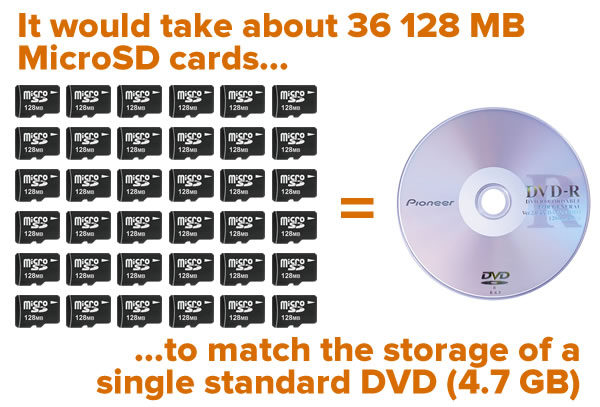
Hey, it works for all my electronics…

Hey, it works for all my electronics…
This chart, taken from the ITU’s report, The World in 2014: ICT Facts and Figures [1.7MB PDF], shows the rate of mobile broadband adoption for the past six years and a projection for the end of this one:
Click the photo to see the source.
Mobile broadband should used by 84% of the developed world by the end of the year, if the current 11.5% growth rate holds. That growth rate is more than double in the developing world, who should hit 21% penetration by December 31st, 2014.
The average person in the developed world has 1.21 mobile subscriptions. Here are the regions with the highest subscription rates:
Click the photo to see the source.
Here’s a look at the worldwide mobile subscription numbers over the past 8 years, plus a look forward to the end of this one. We’ll hit the 7 billion subscription mark by the end of the year, and the lion’s share of those numbers will come from the developing world:
Click the photo to see the source.
For the full story, including numbers on fixed (or “wireline”, as we like to say at GSG) broadband, see the ITU’s report, The World in 2014: ICT Facts and Figures.

Back in the early 1990s, processor speeds where measured in dual-digit megahertz, RAM was measured in single-digit megabytes, and hard drives were just beginning to creep from the two- to three-digit megabyte capacity. During that time, commercially-available storage in the gigabyte range looked like the big disk, pictured above among the more common 3.5 inch floppy disks for size comparison.
It’s an optical disk cartridge with 2.62 GB capacity. The plastic case isn’t much more than a jumbo-sized version of a 3.5 inch floppy, and the disk medium is the close cousin of CD and DVD R/W technology. If you’d like to get your hands on one, it can be yours for $50 on eBay.
To give you a better idea of its size, here’s how you’d carry it around:

And while it looks like a floppy disk, it’s never going to fit in that A: drive:

These ODCs, as they were called for short, didn’t see much use outside enterprise computing. Instead, these smaller, cheaper backup storage devices rose and for a while were the hottest peripherals to have:
…and if you really needed more storage space (I did, as I was developing interactive CD-ROMs at the time), you had one of these:
In case you don’t recognize it, it’s a Commodore cassette tape drive, which they called the “Datasette”, which was cheaper than a diskette drive.
Click the photo to read the Vanity Fair article.
Vanity Fair’s Kurt Eichenwald, whom you probably remember from his August 2012 article on Microsoft’s wane in market share and influence under Steve Ballmer, has written a new article titled The Great Smartphone War. In the battle to own the hardware market for the next frontier in computing and communications, the stakes are high, the competition is fierce, the lawsuits are plenty, and sometimes, the story turns weird.
Eichewald’s earlier article showed Microsoft in a very unflattering light, but it seems like a mild rebuke compared to the way Samsung looks in The Great Smartphone War. He paints a picture of a company formerly known for producing second-rate electronics rising to power through tactics such as price-fixing, bribery, patent violations, using countersuits as delaying tactics while they quietly took the market, creating near-faithful duplicates of competitors’ innovations, and in one case, eating evidence before letting Apple’s legal team come into an office to take depositions.
Click the photo to read the article.
In What…No Deskphones? Barbara A. Grothe, the CEO of an independent IT and technology consultancy, writes about her recent experiences deplying Microsoft Lync as the primary voice communication tool at a couple of client offices. The only deskphones deployed were “a few hallway phones and conference star phones with full duplex speakerphones built in”; all other phone calls made or taken at employee desks were done via Lync running on their computers and wireless headsets. The CIOs at the client firms saw that between employees working outside the office and seeing employees using their own mobile phones at their desks, why bother spending money on deskphones?
Grothe’s consultancy didn’t simply give the employees unopened boxes of headsets and leave them on their own to figure them out. Instead, they made sure that each employee received a fully-charged headset, installed their corresponding dongles and software on their computers, and showed each employee how to use the headset during the installation process. They also made sure that the C-level executives were the first to try the Lync/headset combo; “If the CIO and President of this company can conduct business without a deskphone,” writes Grothe, “then the employee felt motivated to follow suit.”
The use of wireless headsets allowed employees to answer incoming calls even when they were up to 30 feet away from their desks. With this convenience came one issue: unlike deskphones, where you can simply pick up the handset and dial, you have to be logged into your machine first in order to place a call using this setup.
Click the photo to read the article.
Jackdaw Research’s blog, Beyond Devices, maintains a running tally titled US Wireless Numbers that tracks the following figures released by the major wireless carriers as they report their quarterly results:
They’ll be updating this page regularly, so visit it each quarter.
Click the photo to read the article.
AnandTech is my go-to site for solid, detailed, analyses of mobile hardware and software, and here’s one reason: their recent article, Discussion on Material Choices in Mobile, analyzes the pros and cons of plastic, metal, and glass, the materials used to build smartphone bodies.
Photo posted by History in Pictures, found via Frank Michlick. Click the photo to see its source.
One of the more interesting products to be announced at the recent Mobile World Congress this year wasn’t a mobile phone, but an accessory: SanDisk’s 128 GB (gigabytes, where a gigabyte is about 1 billion bytes) SDXC card. A mere nine years ago (two years prior to when the entire mobile industry was redefined by the iPhone), 128 MB (megabytes, where a megabyte is about 1 million bytes, one thousandth of a gigabyte) was the bleeding edge for MicroSD-sized memory cards.
Here’s another way to think of this leap in memory technologies:


As of this writing (May 2, 2014), the SanDisk Ultra 128 GB MicroSD card sells at Best Buy for $200. Popping it your SD card-capable mobile device (most Androids and Windows Phone devices) will give it the storage capacity of the current starter model MacBook Air.
That’s a lot of apps, music, video, and who knows what other kinds of data once some smart app developers imagine what’s possible on a mobile device once you give it the drive space formerly reserved for desktop and laptop systems.
AT&T announced on Monday that they’re joining forces with Honeywell International to provide high-speed, in-flight wifi in the U.S.. The service would give fliers access to AT&T’s 4G and LTE service from their airline seats.
Michael Small, CEO of Gogo, who in six years has managed to capture half the market, says he isn’t worried. “An entrant to the U.S. market at this state is too little, too late,” he said. “We believe airlines are going to be making a lot of decisions about connectivity this year and next,” a time frame during which AT&T will be getting their service set up while Gogo is already in operation.
Gogo may have a significant share of the wifi on US flights, but theirs is an expensive business. The company has been posting increasing losses over the past two years — $96 million in 2012, and $146 million in 2013. Deep-pocketed rivals with other sources of revenue like AT&T — and Panasonic, who bought in-flight entertainment provider LiveTV in March for almost twice as much as Gogo’s 2012 and 2013 losses — could simply choose to play the waiting game and let Gogo spend itself out of existence…or into acquisition.
The market seems to think that AT&T, despite being the new kid on the block in this particular market, are poised to succeed. Here’s a CNNMoney report on that sentiment:
Other reports on AT&T’s entry into the in-flight wifi business:
 Sixty feet below the ground, in an undisclosed location — but presumably within driving distance of the studios of Kansas City’s FOX 4 News studios — is Verizon’s cave of recovery equipment. The cave is climate-controlled and protected from the elements, and the gear allows Verizon to restore service in hours when the region’s tornadoes or other natural disasters destroy a cellular tower, cut a fiber line, or disrupt power.
Sixty feet below the ground, in an undisclosed location — but presumably within driving distance of the studios of Kansas City’s FOX 4 News studios — is Verizon’s cave of recovery equipment. The cave is climate-controlled and protected from the elements, and the gear allows Verizon to restore service in hours when the region’s tornadoes or other natural disasters destroy a cellular tower, cut a fiber line, or disrupt power.
Tony LaRose, head of operations for the facility says “We really got concerned after the Joplin tornado went through about all this equipment just being out in a parking lot. We started looking around thinking how can we make that equipment more secure? This cave location was a perfect solution.”

While T-Mobile have been making headlines by competing very fiercely on price and eliminating overage fees, the cellular market isn’t an overly price-sensitive market, especially when factors such as the network weigh heavily when customers choose a carrier. Network speed is usually a selling point, and as we reported in an earlier article, the crowdsourced wireless analytics group OpenSignal declared that T-Mobile had the fastest LTE network in March, boasting average speeds of 11.5 Mbps (megabits per second).
Speed isn’t the only issue with cellular data, however. If you’ve ever had full signal strength and a fast connection only to lose it because you walked a couple dozen paces in the wrong direction, you know that stability is also important. Most current LTE systems use what’s called 2×2 MIMO antenna technology. MIMO is short for “Multiple In, Multiple Out”, and the 2×2 means that the connection in your phone is established by 2 antennas at the cellular tower, and 2 in your phone. This year, starting in Chicago, Dallas, and San Antonio, T-Mobile plans to deploy 4×2 MIMO systems, which doubles the antennas at the tower that establish the connection with your phone and ensures a better, more stable connection.
T-Mobile have also just closed a deal to acquire access to the very desirable 700 MHz spectrum from Verizon. This frequency band, which is lower than the 1700 – 2100 MHz range in which T-Mobile currently operates, doesn’t carrier as much data as higher frequencies, but travels farther and penetrates barriers such as buildings and thick vegetation. This new frequency band will be used to improve coverage in “nine of the top 10 and 21 of the top 30 metro areas in the country” including Atlanta, Dallas, Detroit, Houston, Los Angeles, Miami, New York, Philadelphia, and Washington D.C..
Sprint is also deploying improvements to its network in the form of Sprint Spark, a technology that uses three different radio frequency ranges and supercharges data transmission speeds to 50 to 60 Mbps, which is about ten times as fast as the average U.S. data speed (according to OpenSignal, the average data transmission speed on U.S. LTE networks is 6.5 Mbps). Spark will appear in 100 U.S. cities over the next three years.
For more reports on Sprint and T-Mobile’s network improvements: